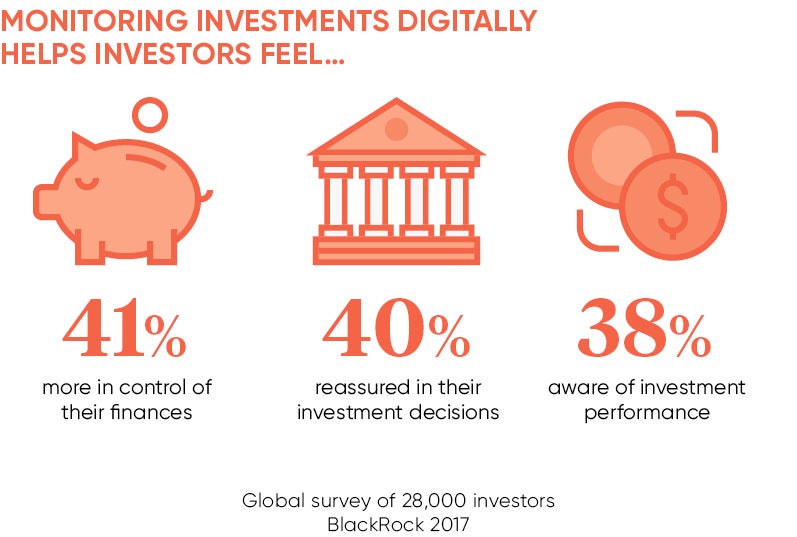A wave of innovation in the financial services industry, led by an amassing army of fintech startups, is disrupting traditional trading houses and offering a better deal for traders who complain of high commissions for deploying their money.
For decades, trading was the preserve of City insiders, but the rise of the internet followed by ubiquitous use of smart devices has disrupted the industry by enabling the creation of platforms that allow people to trade instruments with ease and low costs.
“The old, pin-stripe-suited, cigar-smoking world of trading is being replaced,” says Iqbal Gandham, UK managing director at eToro. “Technology is enabling us to explode that old world, bring new players to the table, and improve the nuts and bolts of how trading works.”
In the past, traders and investors had two options. They could pick trades themselves, but this was difficult because reliable information on stocks and other instruments was hard to come by and expensive. It also involved an always-on trading mentality that made a full-time job difficult to maintain.
The second option was to give the money to an institutional investor that could trade for rates substantially lower than individual investors. The manager would usually be based in the City with a team of expensive researchers and analysts behind them, charging a hefty fee but providing few if any opportunities to speak directly.
However, fintech upstarts are eliminating the difference in these fees for private investors and bringing new traders to the market, enabled by an agile approach to technology and an accommodating regulatory environment.

“It has reinvigorated a tired old industry and made it more accessible to all,” says Mr Gandham. “Fintech companies are changing the way we manage our money and the internet is changing everything about trading. Without a smart response from the established trading industry, old models and incumbent businesses will be slowly swept away, and new ideas will continue to emerge and scale quickly.”
David Mercer, chief executive at LMAX Exchange and a former Credit Suisse executive, adds: “In the 1990s, I used to have about eight screens on my desk, which cost a fortune to access a pretty simple market. I can remember sitting in a dealing room where the price of a seat was $1 million. Now you can access the market on a web user interface for the price of an internet connection. That’s hugely powerful and very exciting.”
A number of online stock brokers were launched following the harmonisation of financial legislation in Europe. With European Union regulations, such as the MiFID (Markets in Financial Instruments Directive) framework, firms established in one country are able to come into a new market and drive prices down, enabling companies to exist locally as a digital provider without a physical presence.
This also means the bricks-and-mortar overhead, which would have previously been a cost passed on to clients, has been eliminated. “Thanks to this, DEGIRO has become a top five European broker in four years, rolling out its service in 18 countries. This has never happened before in such a short timeframe,” says the company’s head of business development for the UK and Ireland, Paul Laverty. DEGIRO treats its 200,000 clients as one large professional client, thereby giving professional rates to retail investors.
Now investors can enter the market for less than the cost of that morning’s coffee or tube ticket
“For smaller investors which may only have a few hundred pounds a month to start with, it simply would have been unfeasible to start a portfolio with commission fees taking 10 per cent, 20 per cent or even 50 per cent of your total investment,” says Mr Laverty. “Now investors can enter the market for less than the cost of that morning’s coffee or tube ticket.”
The emergence of startups that enable peer-to-peer (P2P) transactions is fueling further transformation. P2P lending company Lending Club, for example, has been dubbed “the Uber for loans”. Blockchain, the distributed public ledger beneath cryptocurrencies, is being used to create the trusted network for P2P systems, saving the commissions and lowering the service price.
Market access and simple investments no longer need to cost anything thanks to fintech revolutionaries such as Trading 212. In June the company launched the first UK share trading platform that allows consumers to trade for free. Users receive ten free trades a month up to £10,000 per trade.
“We want to completely shake up retail share trading by democratising the marketplace
so smaller investors are no longer penalised for putting their money to work,” says Trading 212 co-founder Ivan Ashminov.
Anton Kravchenko, formerly of J.P. Morgan and VTB Capital, and now chief executive of Xena Exchange, says: “If you’re an experienced trader, you can generate return on your investments without having to pay 1 to 2 per cent to your market access or investments provider. The only way houses can stay alive now is to provide the same returns, but mature laggards are always too big to provide the same outstanding returns or cost level.
“There is no free meal for brokers anymore; you either drop the commission or invest in artificial intelligence to outperform the market. Small professional firms with a heavy focus on AI will be able to generate significant above-market returns, while big houses will be shred to minimum headcount, bitten by the low-commission fintech sharks.”
With disruption in this industry in its early stages, the game isn’t up for traditional trading houses yet. That also means, however, that the wave of disruption is yet to reach full force. Incumbent brokers must be open to learning and adopting radical new practices through partnerships, and an eagerness to innovate and embrace change. Traders and investors are the biggest winners of the fintech revolution, and brokers that fail to recognise this and adjust accordingly will be left behind.

